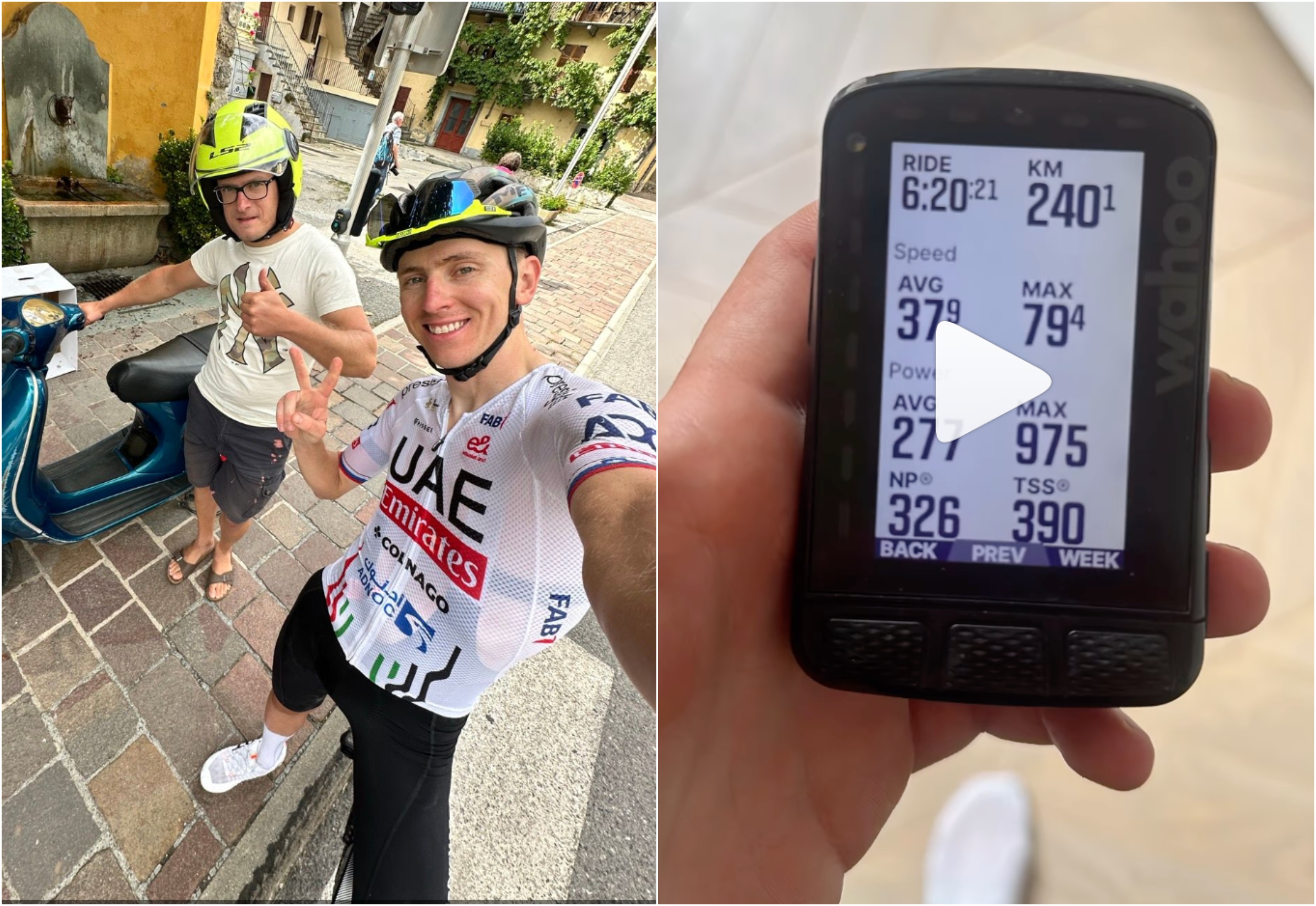Tadej Pogačar appears to set a 415-watt FTP on six-hour-plus Worlds prep ride
The Tour de France winner is looking harder than ever to beat in Zurich


A couple of months back I wrote a fairly extensive piece on detraining and retraining, which pointed out how fast certain facets of fitness and form can decline once you stop riding.
However, from his most recent rides, it would appear that Tadej Pogačar isn't like the rest of us when it comes to fitness and form (as if we needed scientific proof of that).
The Slovenian has been back on the bike after taking a post-Tour de France-winning rest, in preparation for the Road World Championship in Zurich at the end of the month, and more imminently, the Canadian double-header in Montréal and Québec this weekend.
And he has been kicking out some monster numbers, despite his break.
A post shared by Tadej Pogačar (@tadejpogacar)
A photo posted by on
He has posted three rides so far following his post-Tour hiatus, including a 112km jaunt around Québec yesterday. But the one we're interested in took place on his home roads near Monaco on Saturday – a mammoth 240km, 6hr 20min epic in preparation for the historic and even more mammoth 274km Worlds road race distance on September 29.
The Strava posting coincided with an Instagram post in which the UAE-Team Emirates rider briefly held his Wahoo Elemnt Roam computer up to the camera, revealing his stats at the end of the ride.
They were, frankly, startling, even for Pogačar: a normalised power 326 watts for the whole ride and an average speed of 37.9kph (23.5mph) (which it should be said was helped along by the Vespa that was motor-pacing him).
The latest race content, interviews, features, reviews and expert buying guides, direct to your inbox!
But a training stress score (TSS) of 390 was the crucial parameter that allowed one amateur physiology buff in the US to predict Pogačar's FTP using a complex formula.
For the uninitiated, FTP, or functional threshold power, is the wattage a rider can sustain for a longer period of time – say, an hour – without having to let up. Very useful to know when working out how fast you ought to be able to go up a Grand Tour mountain ascent.
Ryan Rodman, an environmental specialist based in San Diego with a fascination for sports science and physiology, calculated that the Slovenian had an FTP of 415 watts.
The data you need is TSS (training stress score), NP (normalized power), and ride time. TSS = IF^2 (intensity factor squared) * Ride Time in Hours (6 hours 20 minutes = 6.33) * 100390 = IF^2 * 6.33 * 100so solve for IFIF^2=0.616, the square root of 0.616 is 0.785September 10, 2024
Wattage is a subjective parameter, but by any test this is huge. Perhaps even more significant is what happens when you divide the 415 by his weight given on the ProCyclingStats website (65kg) to come up with a watts per kilo of 6.38, which is about as high as it gets in the modern era. Put another way, it's no wonder he won the Tour de France.
If he can take this form into the World Championship and stay lucky, it's hard to see how anyone, Remco Evenepoel included, will be able to beat him.
After cutting his teeth on local and national newspapers, James began at Cycling Weekly as a sub-editor in 2000 when the current office was literally all fields.
Eventually becoming chief sub-editor, in 2016 he switched to the job of full-time writer, and covers news, racing and features.
He has worked at a variety of races, from the Classics to the Giro d'Italia – and this year will be his seventh Tour de France.
A lifelong cyclist and cycling fan, James's racing days (and most of his fitness) are now behind him. But he still rides regularly, both on the road and on the gravelly stuff.
